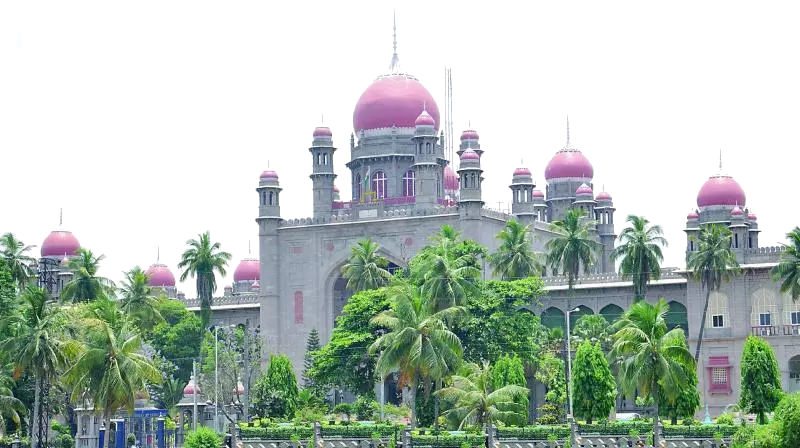Order on acquisition of land in Kanchanbagh set aside

Hyderabad: A two-judge bench of the Telangana High Court, comprising Chief Justice Alok Aradhe and Justice J. Anil Kumar, set aside an order of a single judge requiring acquisition of about seven acres of land in Kanchanbagh village and payment of compensation to the original writ petitioners Fasahatunnisa Begum and two others.
Earlier a writ petition was filed by the petitioner, claiming to be the land owners, seeking implementation of Land Acquisition Act. It is the case of the petitioners that about 18 acres out of 22 acres of land was acquired and though there was no acquisition, possession was taken by the government.
A single judge of the High Court had in November 2004 held that the action of the authorities in not initiating land acquisition proceedings was illegal. The judge directed the Union of India to initiate proceedings and payment of compensation.
The Union of India filed the present appeal contending that no excess land has been taken and therefore the question of initiating the proceedings and paying the compensation does not arise.
Speaking for the bench, Justice Anil Kumar said that the petition raises disputed questions of fact, which cannot be gone into writ proceedings. He also said no relief could be granted to the respondents and accordingly allowed the appeal.
Petitioner’s background comes under strict scrutiny
A two-judge bench of the Telangana High Court put a petitioner in a PIL under strict scrutiny on antecedents. The bench, comprising Chief Justice Alok Aradhe and Justice J. Anil Kumar, was dealing with a PIL filed by Maddireddy Shanker, a practicing advocate.
He complained of inaction on the part of the commissioner of Intermediate Education and commissioner of Secondary School of Education in taking effective measures to prevent suicides by SSC and Intermediate students after the results are declared. The bench wondered aloud whether it was possible for the education system not to conduct examinations and declare results.
On Thursday, the court found that the pleadings in the PIL did not satisfy the rigours of PIL rules which requires the person invoking PIL jurisdiction of the court to essentially plead and establish his antecedents even on the merits of the matter, The Chief Justice asked counsel as to what research he had done before seeking the present relief.
Officials given a week to explain delay in no-trust motion
Justice Nagesh Bheemapaka of the Telangana High Court on Thursday granted a week’s time to the commissioner of fisheries, ex-officio registrar of cooperative societies, and other authorities to respond to the alleged delay in conducting a meeting to consider no-confidence motion against the president of Girijana Matsya Parishramika Sahakara Sangham Limited, Mahbubabad.
The judge was dealing with a writ plea filed by Guguloth Kishan and others, challenging the inaction of the two officers in conducting a meeting for a confidence motion. The petitioners alleged that despite their position they were not conducting a meeting to consider a no-confidence motion against Malothu Lingya who is currently the president of the sangham, Pulluru V. Garla, Mahbubabad district.
Rebutting the contentions, the respondent argued that they did not receive any representation with respect to the said consideration for the no-confidence motion, which has allegedly been submitted by the petitioners. The judge considering the submissions adjourned the matter to next week for the respondents to respond to the alleged inaction.
Stay away from podu lands issue, HC tells police
Justice C.V. Bhasker Reddy of the Telangana High Court directed Annapureddypalli mandal (Bhadradri Kothagudem district) police not to interfere with the possession of the petitioner's agricultural podu land.
The judge was dealing with a writ plea filed by Karam Raja Rao and 25 others. The petitioner alleged that the local CI and SI were threatening to evict the petitioners from their respective agricultural podu lands in Compartment No. 38 of Ramavaram range, Marrigudem Telazarla beat, Annapureddypalli.
Counsel for the petitioners argued that such interference of the police in the petitioner's peaceful possession was illegal and arbitrary. The judge after hearing counsels directed the police personnel not to interfere with the possession and enjoyment of the petitioner’s land in any manner without following due process of law.

